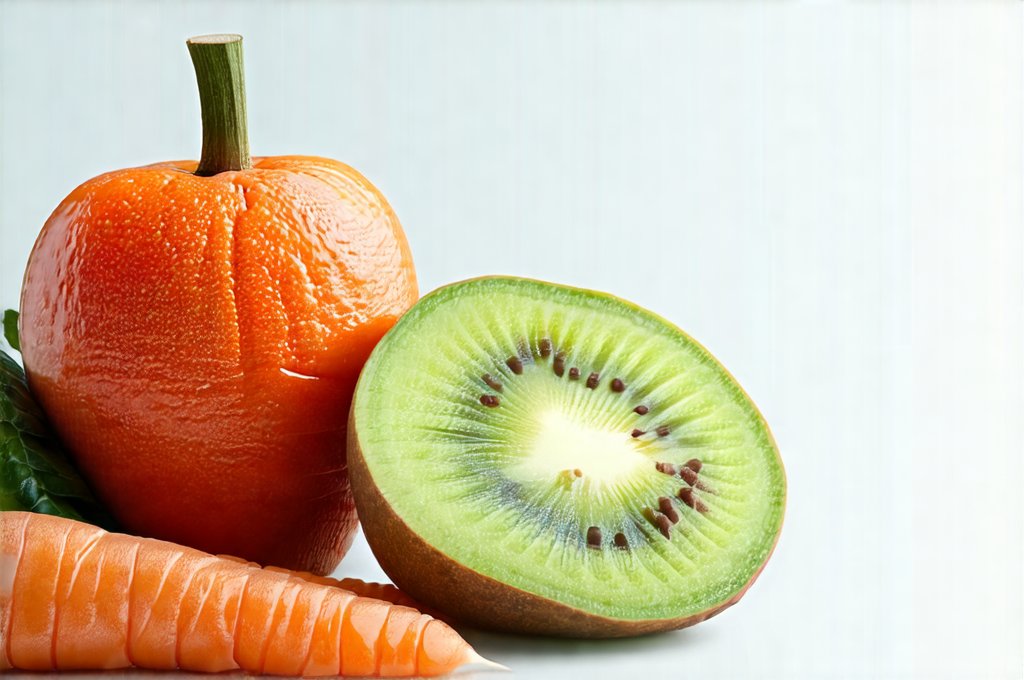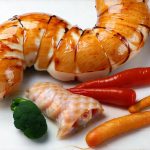Diarrhea, an often unpleasant but incredibly common ailment, is usually viewed as a temporary disruption. We experience it, manage the symptoms, and expect to return to normal relatively quickly. However, for many individuals, “normal” doesn’t simply snap back into place after the acute phase of diarrhea subsides. A lingering fatigue, coupled with subtle but significant nutrient deficiencies, can persist for days, weeks, or even longer, dramatically impacting quality of life. This post-diarrheal state isn’t merely a matter of continued weakness; it represents a complex interplay between gut health disruption, energy depletion, and the body’s efforts to rebuild what has been lost. Understanding this recovery process is vital for supporting optimal well-being after illness.
The acute phase of diarrhea itself causes considerable physiological stress. The rapid expulsion of fluids and electrolytes leads to dehydration, which immediately impacts energy levels. But beyond dehydration, the digestive system undergoes a temporary but significant shutdown or alteration in function. Beneficial gut bacteria can be flushed away alongside harmful pathogens, disrupting the delicate microbial balance crucial for nutrient absorption and immune regulation. This disruption isn’t just about losing “good” bacteria; it alters how efficiently your body processes everything you eat, leading to malabsorption even after the diarrhea stops. Consequently, recovering from diarrhea requires a holistic approach that addresses both immediate symptoms and the underlying physiological changes. If you suspect something more serious, consider tests that match your specific situation.
Understanding Post-Diarrheal Fatigue
Post-diarrheal fatigue is more than just feeling tired. It’s often characterized by a profound sense of exhaustion that doesn’t improve with rest, accompanied by brain fog, reduced motivation, and decreased physical stamina. This isn’t necessarily surprising given the energetic demands placed on the body during and after a diarrheal illness. The immune system ramps up to fight off infection (or deal with irritation), requiring substantial energy expenditure. Repairing the damaged intestinal lining also necessitates significant resources. But the fatigue extends beyond these immediate effects.
The disruption of gut microbiota plays a central role. A healthy microbiome is vital for converting food into usable energy, and its imbalance can impair this process. Furthermore, inflammation often accompanies diarrhea, even mild cases, and chronic inflammation is notoriously draining on energy reserves. It’s also important to recognize that the psychological stress associated with illness – the disruption to routine, discomfort, worry about potential complications – further contributes to fatigue. The brain and gut are intimately connected (the “gut-brain axis”), meaning disturbances in one system directly impact the other.
Finally, nutrient depletion exacerbates the problem. Diarrhea hinders the absorption of essential vitamins, minerals, and macronutrients. Even if you continue to eat a healthy diet during diarrhea, your body may not be able to utilize those nutrients effectively. This creates a vicious cycle: fatigue makes it harder to maintain a nutritious diet, while nutrient deficiencies worsen fatigue. Individuals with pre-existing conditions like Irritable Bowel Syndrome (IBS) or Inflammatory Bowel Disease (IBD) may experience more prolonged and severe post-diarrheal fatigue due to compromised gut function. Digestive panels can help identify underlying issues.
Nutrient Loss & Replenishment Strategies
Diarrhea doesn’t discriminate – it can lead to the loss of a wide range of vital nutrients. The severity of loss depends on the duration and intensity of the diarrhea, as well as individual factors like diet and overall health. However, some common nutrient deficiencies observed after diarrheal episodes include: – Electrolytes (sodium, potassium, chloride, magnesium) – crucial for hydration and nerve function. – Water-soluble vitamins (B vitamins, vitamin C) – easily flushed out during fluid loss. – Fat-soluble vitamins (A, D, E, K) – absorption can be impaired due to reduced fat digestion. – Minerals (zinc, iron) – essential for immune function and energy production. – Protein – breakdown of intestinal lining requires amino acids.
Replenishing these nutrients is paramount for recovery. Simply “eating healthy” isn’t always enough immediately after diarrhea; a more targeted approach is often needed. Oral rehydration solutions (ORS) are the first line of defense, restoring lost electrolytes and preventing dehydration. Beyond ORS, focus on easily digestible foods rich in specific nutrients: bananas (potassium), rice (binding effect and carbohydrates), applesauce (pectin for gut soothing), toast (simple carbohydrates). As tolerance improves, gradually reintroduce more complex carbohydrates, lean proteins, and healthy fats. Blended meals can be particularly helpful during this phase.
Consider incorporating probiotic-rich foods or supplements to help restore the gut microbiome. Fermented foods like yogurt (with live cultures), kefir, sauerkraut, and kimchi can be beneficial. If supplementing with probiotics, choose a strain clinically shown to support gut health and consider consulting with a healthcare professional for personalized recommendations. It’s crucial to avoid overly processed foods, sugary drinks, and high-fat meals in the initial recovery phase, as these can further irritate the digestive system and hinder nutrient absorption.
Addressing Electrolyte Imbalance
Electrolyte imbalance is arguably the most immediate concern post-diarrhea. Sodium, potassium, chloride, and magnesium are all lost through diarrhea, disrupting vital bodily functions. Symptoms of electrolyte imbalance include muscle cramps, weakness, irregular heartbeat, confusion, and even seizures in severe cases.
Restoring these electrolytes isn’t just about drinking water; it requires actively replenishing them. Oral rehydration solutions (ORS) are specifically formulated to contain the correct balance of electrolytes for optimal absorption. Homemade ORS can be made using safe water, sugar, and salt, but commercially available options often offer more precise formulations. Foods rich in electrolytes should also be incorporated into your diet: – Potassium: bananas, sweet potatoes, spinach, beans. – Sodium: broth-based soups, pickles (in moderation). – Magnesium: dark leafy greens, nuts, seeds.
It’s important to avoid excessive caffeine and alcohol consumption during recovery, as these can further dehydrate the body and worsen electrolyte imbalances. Monitor your urine color – pale yellow indicates adequate hydration, while dark yellow suggests dehydration. If symptoms of severe electrolyte imbalance persist, seek medical attention immediately. Mini fasts may also aid in recovery.
Rebuilding Gut Microbiota
The gut microbiome is a complex ecosystem that plays a crucial role in digestion, immunity, and overall health. Diarrhea disrupts this delicate balance, often leading to a reduction in beneficial bacteria and an overgrowth of potentially harmful ones. Rebuilding the gut microbiota is essential for restoring digestive function and reducing inflammation.
Probiotics are live microorganisms that can help repopulate the gut with beneficial bacteria. They’re available in food form (fermented foods) or supplement form. When choosing a probiotic supplement, consider these factors: – Strain specificity: different strains have different effects. Look for strains clinically shown to support digestive health. – CFU count: colony-forming units – indicates the number of live bacteria per dose. – Survivability: some probiotics are more resistant to stomach acid than others.
Prebiotics act as food for probiotics, helping them thrive in the gut. They’re found in foods like onions, garlic, bananas, asparagus, and oats. Consuming both probiotics and prebiotics (synbiotics) can enhance their effectiveness. Additionally, minimizing factors that disrupt the microbiome – such as excessive antibiotic use and a diet high in processed foods – is crucial for long-term gut health.
Optimizing Dietary Intake & Digestion
Post-diarrheal recovery requires a carefully considered dietary approach focused on gentle digestion and nutrient absorption. The BRAT diet (bananas, rice, applesauce, toast) is often recommended initially, providing easily digestible carbohydrates that can help bind the stool. However, it’s important to move beyond this restrictive diet as soon as tolerated.
Gradually reintroduce other foods, starting with lean proteins (chicken, fish, tofu), well-cooked vegetables, and healthy fats (avocado, olive oil). Avoid high-fat, fried, spicy, or sugary foods, which can exacerbate digestive symptoms. Smaller, more frequent meals are often easier to digest than large meals. Pay attention to your body’s signals and adjust your diet accordingly.
Consider incorporating digestive enzymes to aid in the breakdown of food and improve nutrient absorption. These supplements contain enzymes that help digest carbohydrates, proteins, and fats. Chewing food thoroughly and eating slowly also promote better digestion. Hydration remains crucial throughout the recovery process. Prioritize water intake and consider sipping on herbal teas (ginger, chamomile) for their soothing properties. The goal is to nourish your body with easily digestible nutrients while allowing your digestive system to heal and rebuild. Gut parasites can also contribute to these issues.


















